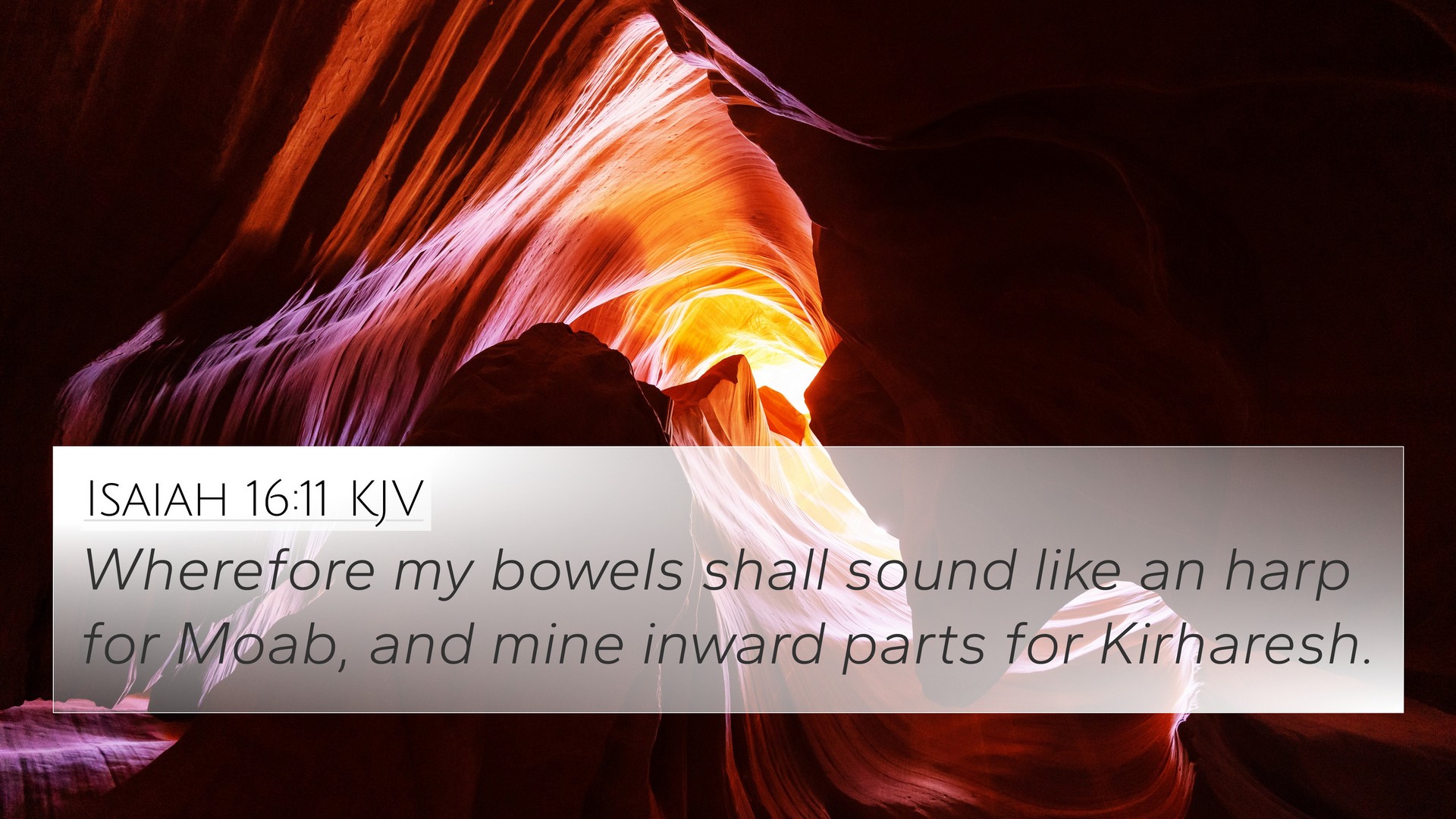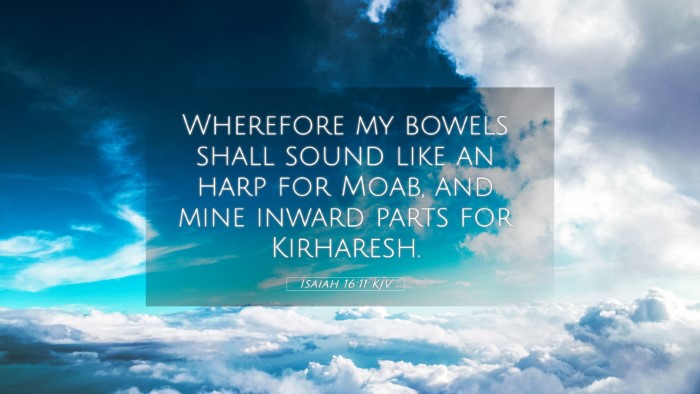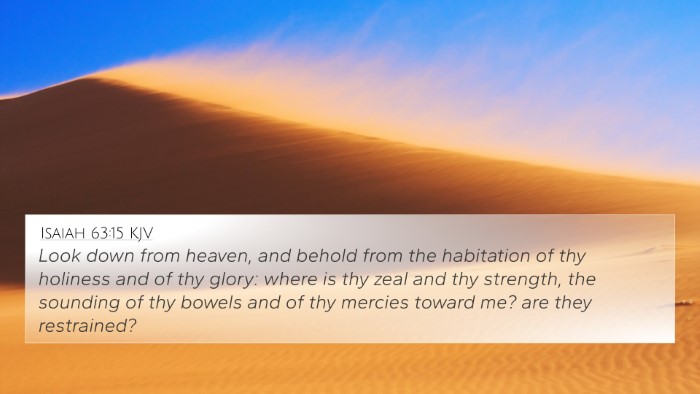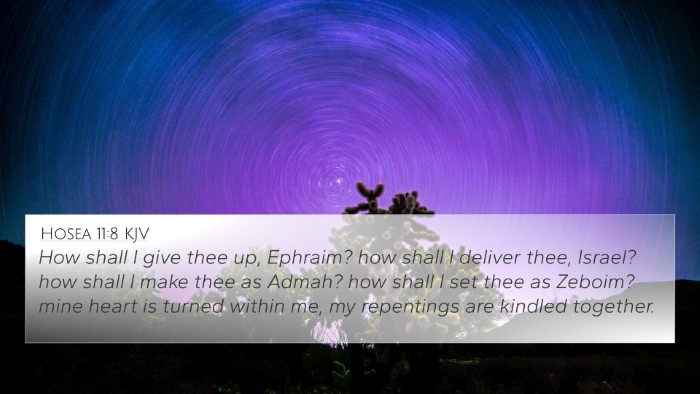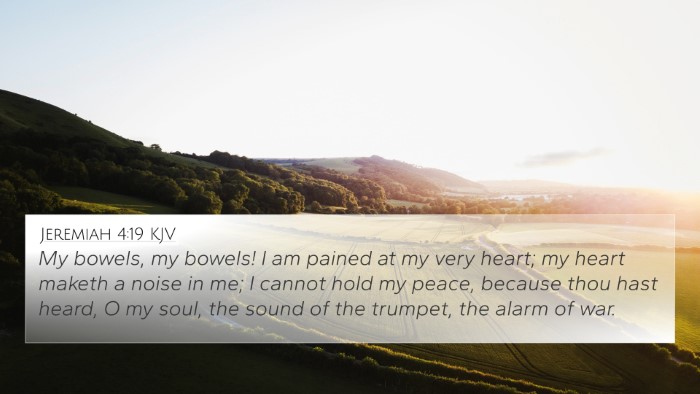Understanding Isaiah 16:11
This verse from the Book of Isaiah conveys deep emotional imagery, speaking of the sorrow and lamentation of the heart. It is vital to understand the context and implications of such expressions, which reveal the profound consequences of sin and the distance from God that comes with it. Insights from various public domain commentaries help to unpack this significance.
Verse Context
Isaiah 16 is a prophecy concerning Moab, a nation often characterized by its pride and rebellion against God. Verse 11 reads:
“Therefore my bowels shall sound like an harp for Moab, and mine inward parts for Kirharesh.”
This proclamation is expressed in a deeply personal manner, indicating the prophet's emotional turmoil regarding Moab's plight.
Insights from Commentaries
Matthew Henry
Matthew Henry emphasizes the compassion that Isaiah expresses for Moab, which, despite its transgressions, evokes a sense of pity due to their impending suffering. He makes clear that such emotions signal a larger divine message about the consequences of moving away from God’s truths.
Albert Barnes
Albert Barnes describes the imagery of the harp, noting that Isaiah's inner anguish reflects the inevitable disaster awaiting Moab. His insights connect the lamentation in Isaiah 16:11 with the broader theme of God’s justice and mercy, illustrating how sorrow often follows rebellion.
Adam Clarke
Adam Clarke points out the significance of the cities named, particularly Kirharesh, highlighting that each location represents distinct aspects of Moab's identity and struggles. Clarke emphasizes the role of Isaiah as a messenger whose emotional burden serves as a reflection of God's heart towards a wayward people.
Thematic Connections
This verse can be connected to various Biblical themes, particularly concerning divine judgment and mercy. Below are several Bible cross-references that further illuminate the meaning of Isaiah 16:11:
- Jeremiah 48:36: Similar lamentation over Moab’s fate.
- Lamentations 3:48-49: Crying and lamenting calls similar feelings in brokenness.
- Ezekiel 25:8-11: The judgment against Moab and its consequences.
- Isaiah 15:1: Introduction to the prophecies against Moab.
- Micah 1:10: Demonstrates the devastation depicted in biblical prophecies.
- Revelation 21:4: The ultimate comfort and restoration in contrast to the sorrow of sin.
- Matthew 23:37: Jesus’ lament over Jerusalem, similar emotional appeal to God’s heart.
Exploring Cross-References
To engage deeply with Isaiah 16:11 through cross-referencing, consider the following methods:
- Utilizing a Bible concordance to find related themes of lamentation and prophecy.
- Employing cross-reference tools during personal study sessions.
- Exploring Bible chain references to see thematic links between prophecies and fulfillments.
- Integrating cross-referenced themes within personal study or sermon preparation, focusing on divine justice.
Conclusion
Isaiah 16:11 serves as a poignant reminder of the emotional weight that divine pronouncements carry. Through comparative analysis, we recognize connections between various passages, reflecting the consistent narrative of sin, repentance, and mercy that permeates the Scriptures. This verse encapsulates both the sorrow over Moab's downfall and the larger Biblical theme of God’s longing for genuine relationship with His people.
